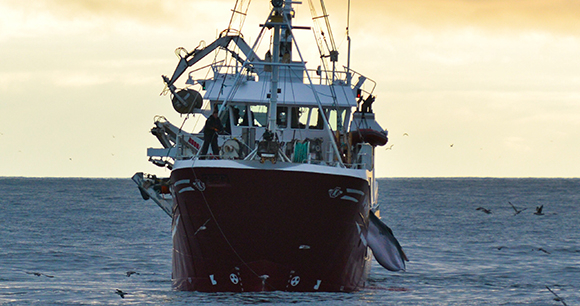
Oslo, Norway—In defiance of a 40-year-old international agreement to protect whales, Norway slaughtered at least 580 whales during the 2022 whaling season—the highest number in six years. Norway continues to kill far more whales than any other nation. More than 15,000 have been killed by Norwegian whalers since 1986, when the International Whaling Commission (IWC) ban on commercial whaling took effect.
Whales are typically shot with grenade harpoons, which can cause the animals to suffer as long as 25 minutes before dying. A 2021 survey indicated that 6 of 10 Norwegians disapprove of this practice. Whaling should have ended long ago for animal welfare reasons; new research also shows that whales are vital for marine ecosystem health, including harnessing the ocean's ability to capture carbon, according to Siri Martinsen, veterinarian and head of NOAH, Norway’s largest animal protection NGO.
“This has gone on for 40 years too long—now the catch must be discontinued,” she said. “In addition, this year the Norwegian Scientific Committee for Food and Environment produced a report which shows that we have very poor knowledge of the minke whale population. This too should justify an end to whaling.”
It is unlikely that the high number of whales killed this season will translate to increased profits for the whaling industry, as demand continues to drop. According to a poll commissioned last year by NOAH, the Animal Welfare Institute (AWI) and WDC, Whale and Dolphin Conservation, only 2% of Norwegians eat whale meat often, down from 4% in 2019. Among women, only 1% said they ate whale meat often, and no respondents under age 35 said they ate whale meat often.
“As consumer polls show, Norway's domestic market for whale meat is dwindling, and the country’s whaling industry relies on Japan to keep its head above water,” said Kate O’Connell, marine wildlife consultant for AWI. “Already this year, 226 tons of whale meat have been shipped to Japan; a second shipment of 124 tons is imminent. Norway is tarnishing its reputation around the globe by defying the international commercial whaling moratorium, and undermining an international trade ban on whale products. Healthy whale populations are an important tool in tackling climate change, yet the industry continues to peddle whale meat for dog food or dump it into the sea.”
“Many Norwegians have been misled for decades by propaganda from the whalers suggesting that they need to kill whales because they eat too many commercially valuable fish,” said Vanessa Williams-Grey, campaign coordinator at WDC, Whale and Dolphin Conservation. “In fact, research over the last 10 years shows that the more whales we have, the better it is for marine ecosystems.”
A clear example of this is that after several decades of industrial whaling in the Antarctic Ocean, the amount of krill declined. Research shows that whales help circulate nutrients and increase the production of phytoplankton in the sea. Thus, more whales can increase the amount of fish that feed on plankton. Further, whales counteract climate change by increasing carbon uptake in the sea.
International opposition to whaling remains strong, based, in part, on new knowledge about how important whales are to the ecosystem. Iceland is signaling a possible end to commercial whaling in 2024, which will leave Norway and Japan as the only countries in the world that continue commercial whale hunts.
- Marjorie Fishman, Animal Welfare Institute
[email protected], (202) 446-2128 -
Siri Martinsen, NOAH
[email protected], +47 95944499 -
Danny Groves, Whale and Dolphin Conservation, WDC
[email protected], +44 (0) 1249 449534 or +44 (0) 7834 498277
The Animal Welfare Institute (awionline.org) is a nonprofit charitable organization founded in 1951 and dedicated to reducing animal suffering caused by people. AWI engages policymakers, scientists, industry, and the public to achieve better treatment of animals everywhere—in the laboratory, on the farm, in commerce, at home, and in the wild. Follow us on Facebook, Twitter, and Instagram for updates and other important animal protection news.
NOAH, Norway’s largest animal rights organization, was founded in 1989 and is based on the principle that all animals deserve freedom and respect. NOAH is working against animal exploitation in the farming industry, entertainment industry, in laboratory research, and more by spreading information to the public, arranging protests, lobbying, and campaigning. The organization is also dedicated to protection and conservation of wild animals.
WDC, Whale and Dolphin Conservation, is the leading global charity dedicated to the conservation and protection of whales and dolphins. We defend these remarkable creatures against the many threats they face through campaigns, lobbying, advising governments, conservation projects, field research, and rescue.